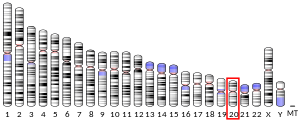Attractin
Appearance
(Redirected from ATRN)
| ATRN | |||||||||||||||||||||||||||||||||||||||||||||||||||
|---|---|---|---|---|---|---|---|---|---|---|---|---|---|---|---|---|---|---|---|---|---|---|---|---|---|---|---|---|---|---|---|---|---|---|---|---|---|---|---|---|---|---|---|---|---|---|---|---|---|---|---|
| Identifiers | |||||||||||||||||||||||||||||||||||||||||||||||||||
| Aliases | ATRN, DPPT-L, MGCA, attractin | ||||||||||||||||||||||||||||||||||||||||||||||||||
| External IDs | OMIM: 603130; MGI: 1341628; HomoloGene: 22542; GeneCards: ATRN; OMA:ATRN - orthologs | ||||||||||||||||||||||||||||||||||||||||||||||||||
| |||||||||||||||||||||||||||||||||||||||||||||||||||
| |||||||||||||||||||||||||||||||||||||||||||||||||||
| |||||||||||||||||||||||||||||||||||||||||||||||||||
| |||||||||||||||||||||||||||||||||||||||||||||||||||
| |||||||||||||||||||||||||||||||||||||||||||||||||||
| Wikidata | |||||||||||||||||||||||||||||||||||||||||||||||||||
| |||||||||||||||||||||||||||||||||||||||||||||||||||
Attractin is a protein that in humans is encoded by the ATRN gene.[5][6][7]
Attractin is a Group XI C-type lectin.
Multiple transcript variants encoding different isoforms exist for this gene. One of the isoforms is a membrane-bound protein with sequence similarity to the mouse mahogany protein, a receptor involved in controlling obesity. The other isoform is a secreted protein involved in the initial immune cell clustering during inflammatory responses that may regulate the chemotactic activity of chemokines.[7]
References
[edit]- ^ a b c GRCh38: Ensembl release 89: ENSG00000088812 – Ensembl, May 2017
- ^ a b c GRCm38: Ensembl release 89: ENSMUSG00000027312 – Ensembl, May 2017
- ^ "Human PubMed Reference:". National Center for Biotechnology Information, U.S. National Library of Medicine.
- ^ "Mouse PubMed Reference:". National Center for Biotechnology Information, U.S. National Library of Medicine.
- ^ Duke-Cohan JS, Gu J, McLaughlin DF, Xu Y, Freeman GJ, Schlossman SF (Oct 1998). "Attractin (DPPT-L), a member of the CUB family of cell adhesion and guidance proteins, is secreted by activated human T lymphocytes and modulates immune cell interactions". Proc Natl Acad Sci U S A. 95 (19): 11336–41. Bibcode:1998PNAS...9511336D. doi:10.1073/pnas.95.19.11336. PMC 21643. PMID 9736737.
- ^ Duke-Cohan JS, Morimoto C, Rocker JA, Schlossman SF (Apr 1996). "Serum high molecular weight dipeptidyl peptidase IV (CD26) is similar to a novel antigen DPPT-L released from activated T cells". J Immunol. 156 (5): 1714–21. doi:10.4049/jimmunol.156.5.1714. PMID 8596018.
- ^ a b "Entrez Gene: ATRN attractin".
External links
[edit]- Human ATRN genome location and ATRN gene details page in the UCSC Genome Browser.
Further reading
[edit]- Mori M, Sakurai M, Araie M (1993). "[Topical timolol and blood-aqueous barrier permeability to protein in human eyes]". Nippon Ganka Gakkai Zasshi. 96 (11): 1418–22. PMID 1476071.
- Nagase T, Ishikawa K, Miyajima N, et al. (1998). "Prediction of the coding sequences of unidentified human genes. IX. The complete sequences of 100 new cDNA clones from brain which can code for large proteins in vitro". DNA Res. 5 (1): 31–9. doi:10.1093/dnares/5.1.31. PMID 9628581.
- Nagle DL, McGrail SH, Vitale J, et al. (1999). "The mahogany protein is a receptor involved in suppression of obesity". Nature. 398 (6723): 148–52. Bibcode:1999Natur.398..148N. doi:10.1038/18210. PMID 10086355. S2CID 4400267.
- Gunn TM, Miller KA, He L, et al. (1999). "The mouse mahogany locus encodes a transmembrane form of human attractin". Nature. 398 (6723): 152–6. Bibcode:1999Natur.398..152G. doi:10.1038/18217. PMID 10086356. S2CID 4371433.
- Tang W, Gunn TM, McLaughlin DF, et al. (2000). "Secreted and membrane attractin result from alternative splicing of the human ATRN gene". Proc. Natl. Acad. Sci. U.S.A. 97 (11): 6025–30. Bibcode:2000PNAS...97.6025T. doi:10.1073/pnas.110139897. PMC 18552. PMID 10811918.
- Deloukas P, Matthews LH, Ashurst J, et al. (2002). "The DNA sequence and comparative analysis of human chromosome 20". Nature. 414 (6866): 865–71. Bibcode:2001Natur.414..865D. doi:10.1038/414865a. PMID 11780052.
- Strausberg RL, Feingold EA, Grouse LH, et al. (2003). "Generation and initial analysis of more than 15,000 full-length human and mouse cDNA sequences". Proc. Natl. Acad. Sci. U.S.A. 99 (26): 16899–903. Bibcode:2002PNAS...9916899M. doi:10.1073/pnas.242603899. PMC 139241. PMID 12477932.
- Gevaert K, Goethals M, Martens L, et al. (2004). "Exploring proteomes and analyzing protein processing by mass spectrometric identification of sorted N-terminal peptides". Nat. Biotechnol. 21 (5): 566–9. doi:10.1038/nbt810. PMID 12665801. S2CID 23783563.
- Friedrich D, Kühn-Wache K, Hoffmann T, Demuth HU (2003). "Isolation and Characterization of Attractin-2". Dipeptidyl Aminopeptidases in Health and Disease. Advances in Experimental Medicine and Biology. Vol. 524. pp. 109–13. doi:10.1007/0-306-47920-6_14. ISBN 0-306-47717-3. PMID 12675230.
- Bunkenborg J, Pilch BJ, Podtelejnikov AV, Wiśniewski JR (2004). "Screening for N-glycosylated proteins by liquid chromatography mass spectrometry". Proteomics. 4 (2): 454–65. doi:10.1002/pmic.200300556. PMID 14760718. S2CID 29261009.
- Gerhard DS, Wagner L, Feingold EA, et al. (2004). "The Status, Quality, and Expansion of the NIH Full-Length cDNA Project: The Mammalian Gene Collection (MGC)". Genome Res. 14 (10B): 2121–7. doi:10.1101/gr.2596504. PMC 528928. PMID 15489334.
- Liu T, Qian WJ, Gritsenko MA, et al. (2006). "Human Plasma N-Glycoproteome Analysis by Immunoaffinity Subtraction, Hydrazide Chemistry, and Mass Spectrometry". J. Proteome Res. 4 (6): 2070–80. doi:10.1021/pr0502065. PMC 1850943. PMID 16335952.
- Wrenger S, Faust J, Friedrich D, et al. (2007). "Attractin, a dipeptidyl peptidase IV/CD26-like enzyme, is expressed on human peripheral blood monocytes and potentially influences monocyte function". J. Leukoc. Biol. 80 (3): 621–9. doi:10.1189/jlb.1105678. PMID 16835316. S2CID 31858918.






